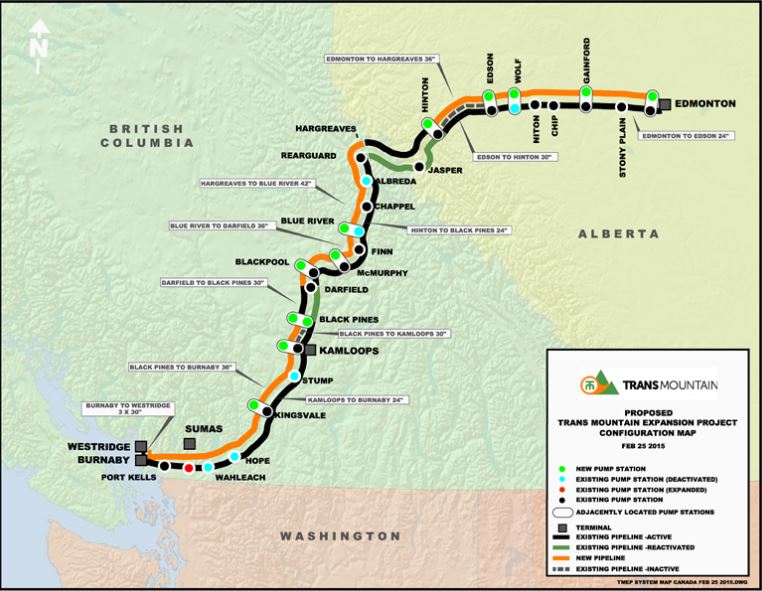Trans Mountain pipeline plan lacks urgency, Senator says

Proposed Trans Mountain twinned pipeline expansion project.

The Canadian government is moving to revive the $7.4 billion Trans Mountain Pipeline expansion just weeks after a Federal Court of Appeal quashed the approval of the project on the basis that Canada’s efforts to meaningfully consult with Indigenous people fell short.
When the ruling was announced, the court also criticized the lack of attention given to how increased tanker traffic off the cost of British Columbia would affect the resident killer whale population.
Ottawa is now instructing the National Energy Board to review the Trans Mountain pipeline expansion to consider the project’s impact on the marine environment.
Natural Resources Minister Amarjeet Sohi said the federal regulator will have 22 weeks to hear from Canadians and report back to government.
However, he did not reveal Ottawa’s plan for further consultations with Indigenous people impacted by the pipeline project. He said those details will be announced at a later date.
“We are focused on getting this project right. We want to make sure that everything we do enables us to move forward on this project, which is a very important project for Canada’s economy,” Sohi said.
However, Alberta Senator Doug Black was critical of the announcement and the lack of specifics on what Indigenous-consultation measures must be taken.
“This announcement will not fast-forward action to reverse the loss of jobs and the serious negative financial impact on Canadian families,” Black said in a statement released on Friday September 21.
Black is urging Ottawa to adopt Bill S-245, the Trans Mountain Pipeline Project Act, as the foundation for its approach to getting the pipeline project built and operating. Bill S-245 declares the Trans Mountain Pipeline and its related works to be to the general advantage of Canada.
“There is no sense of urgency by the Government, and this results in a loss of jobs and opportunities,” Black said. “Every day of delay hurts us all.”
Ottawa has asked the National Energy Board to review Trans Mountain after recently purchasing the project from Kinder Morgan Canada [KML-TSX] for $4.5 billion.
As part of the agreement, Ottawa pledged to fund the resumption of the pipeline planning and construction work by guaranteeing the project’s expenses under a separate Federal Government recourse credit facility until the transaction closes.
The agreement was reached just days before a May 31, 2018 deadline set by Kinder Morgan which had suspended non-essential spending due to opposition from the British Columbia government and a previous lack of clarity regarding the way forward for the project.
The original Trans Mountain Pipeline was built in 1953 and continues to operate today. The proposed expansion is essentially a twinning of the existing 1,150-kilometre pipeline between Edmonton, Alberta and Burnaby, British Columbia.
Expected to cost approximately $7.4 billion, it will create a pipeline system with a nominal capacity rising from 300,000 barrels per day to 890,000 barrels per day.
